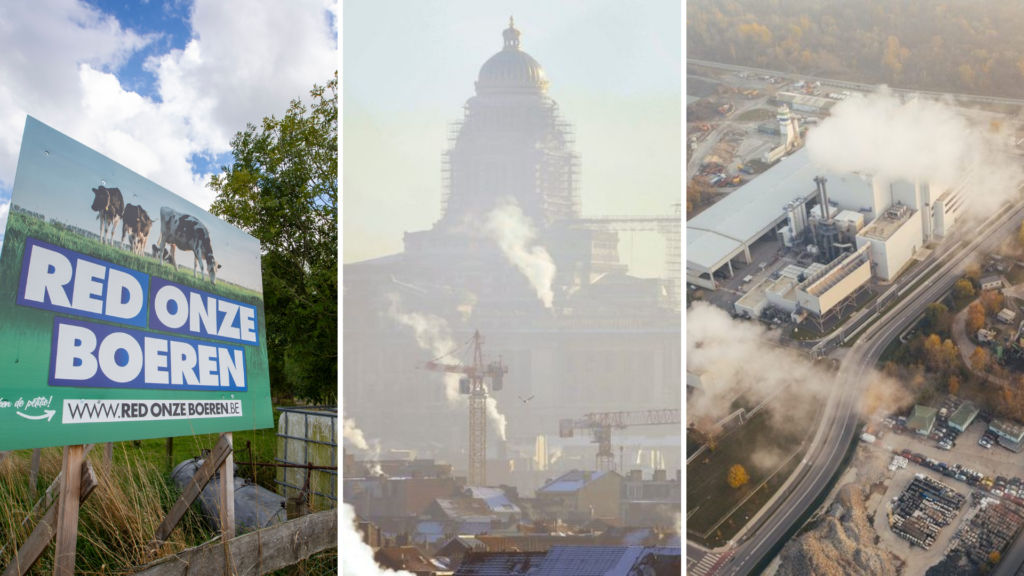Today has become yet another inauspicious landmark in Belgium's struggle to conform to EU climate targets as for the second time this year the country's regional differences prove an insurmountable barrier to national accord. As a result, Belgium has missed the second deadline to submit its climate plan to the EU.
It isn't the first time we see Belgian politicians disagreeing vociferously about environmental measures, nor will it be the last. But the latest dispute has once more pitched Flanders against the rest of Belgium, as Flemish climate minister Zuhal Demir again refused to budge on the region's climate commitments, which fall short of the national ambition to cut greenhouse gas emissions by 47% in 2030 (compared to 2005 levels).
Adamant that "Flanders is investing enormously in energy savings", Demir is less concerned about bringing Belgium into step with EU climate mandates and more attuned to the concerns of traditional Flemish industries that stand to lose from the tightened regulations.
Most outspoken on this has been the agricultural sector, which hotly contests proposals to curtail nitrogen emissions to such an extent that some farmers would be obliged to wind up operations. The same anger among farming communities in the Netherlands has spawned the Farmer-Citizen Movement (BBB) party, which in the four years since its conception has soared in polls to become a major adversary to the establishment.
Taking inspiration from the momentum in the Netherlands, an equivalent party was launched in Flanders in October. It puts "protecting farmers against a lot of strict legislation" front and centre of its agenda and laments that citizens "are increasingly being pushed into corners and boxes."
This same intransigence was evident in Demir's rejection of higher emissions cuts, the Flemish minister instead suggesting that Belgium submits an unharmonised bundle of regional plans and figure out its differences in due course. Whilst this would technically satisfy the immediate EU conditions, Belgium's other regions have pushed back, with green parties arguing that Flanders will pull net reductions down – penalising Belgium as a whole.
Wallonia and Brussels have settled on reductions of 47% whilst Flanders won't go above 40%. By 2030 this would mean national reductions stand at 43% and Belgium liable to fines in the billions for missing its target. The notion that the country as a whole might pay for Flanders' obstinacy sticks in the side of green party ministers, though Demir herself has been sceptical that the EU would impose fines for missing climate targets.
How much longer can Belgium keep up business as usual? Let @Orlando_tbt know.
Belgium in Brief is a free daily roundup of the top stories to get you through your coffee break conversations. To receive it straight to your inbox every day, sign up below:
1. Belgium misses second EU climate plan deadline
As Belgium's various climate ministers cannot find an agreement on the national climate plan which needs to be submitted to the European Commission, they have also missed the second deadline which expired on Friday. Read more.
2. Storm Ciarán: What should you do in case of storm damage?
In the aftermath of Storm Ciarán, some people across Belgium may discover that their property has been damaged by the heavy gusts of wind. Find out what necessary steps to take in case of storm damage below. Read more.
3. What to do in Brussels this weekend: 3 - 5 November
Friday thankfully always seems to come around faster when the working week is split by a bank holiday. While some may be sad that the Halloween festivities and bank holiday are over, there is still plenty to discover in the Belgian capital this weekend. Read more.
4. Antisemitism rises sharply in Belgium after Israel-Hamas violence escalation
Since the start of the violence between Israel and Hamas at the beginning of October, the Jewish community in Belgium has been feeling increasingly unsafe, with five times as many reports of antisemitism than usual this month. Read more.
5. Over 1.2 million m² of undeveloped public land and vacant buildings in Brussels
Brussels has over 1.2 million square metres of unused land and vacant buildings which could be used to tackle the lack of affordable housing in the region. Read more.
6. Belgian PM expresses ‘deep concern’ over many civilian casualties in Gaza
Belgian Prime Minister Alexander De Croo expressed his "deep concern" over the many civilian deaths in Gaza in a phone call to the Israeli President Isaac Herzog. Read more.
7. Brussels e-shop launches raclette delivered to your door
The cheesemaker behind Plateau Berger in Ixelles and La Petite Vache in Saint-Josse has launched the very first e-shop specialising in raclette, offering a bicycle delivery service throughout the Brussels-Capital Region, La Capital reports. Read more.


